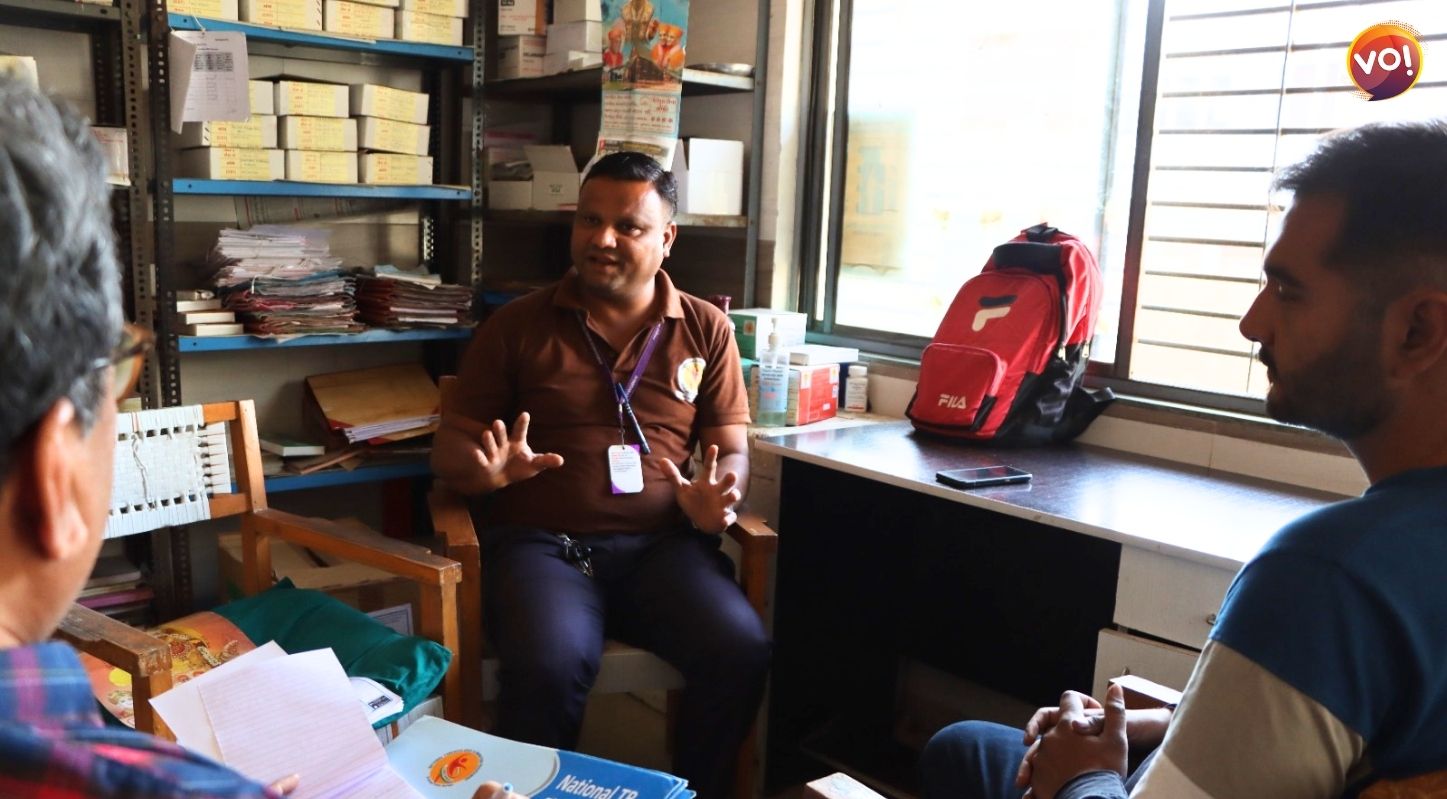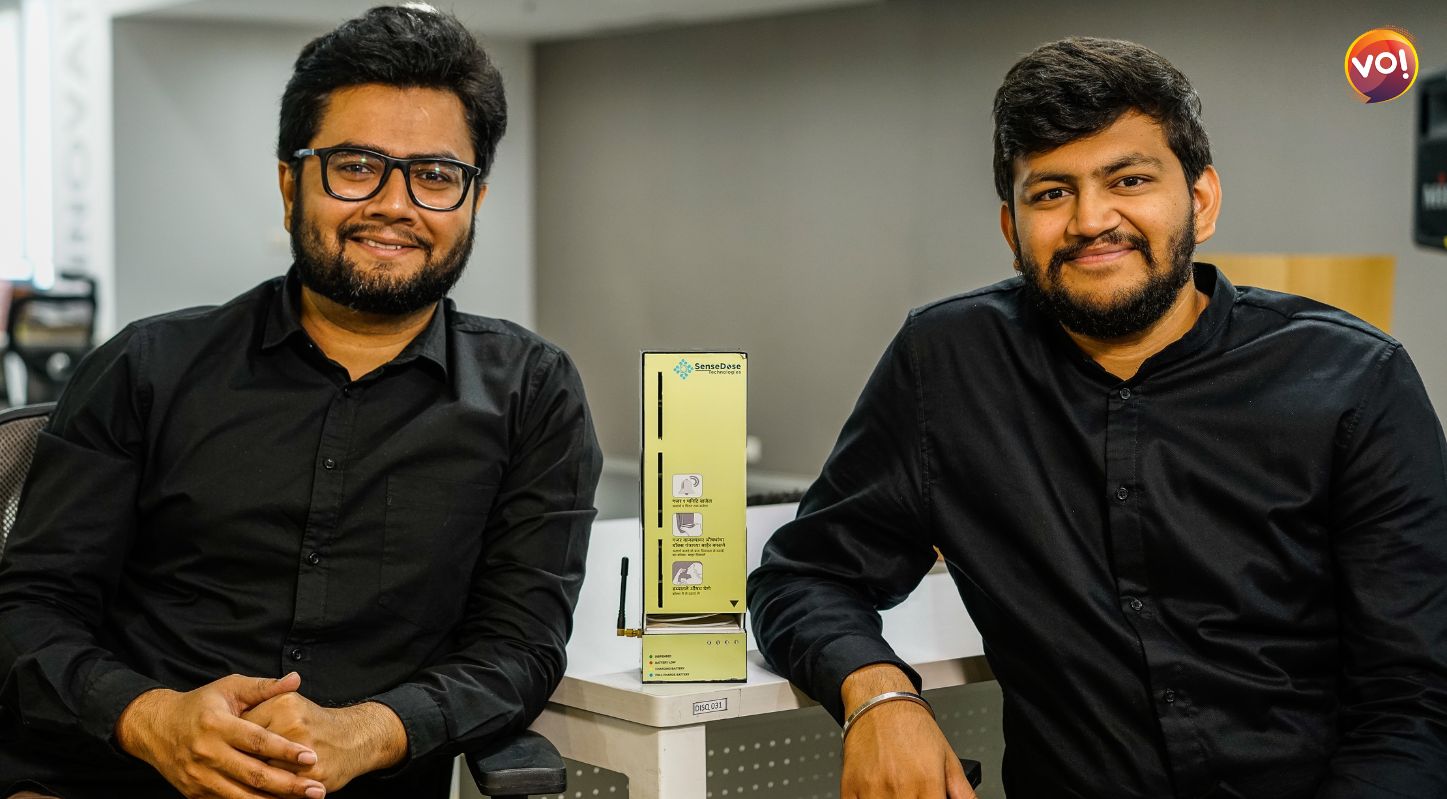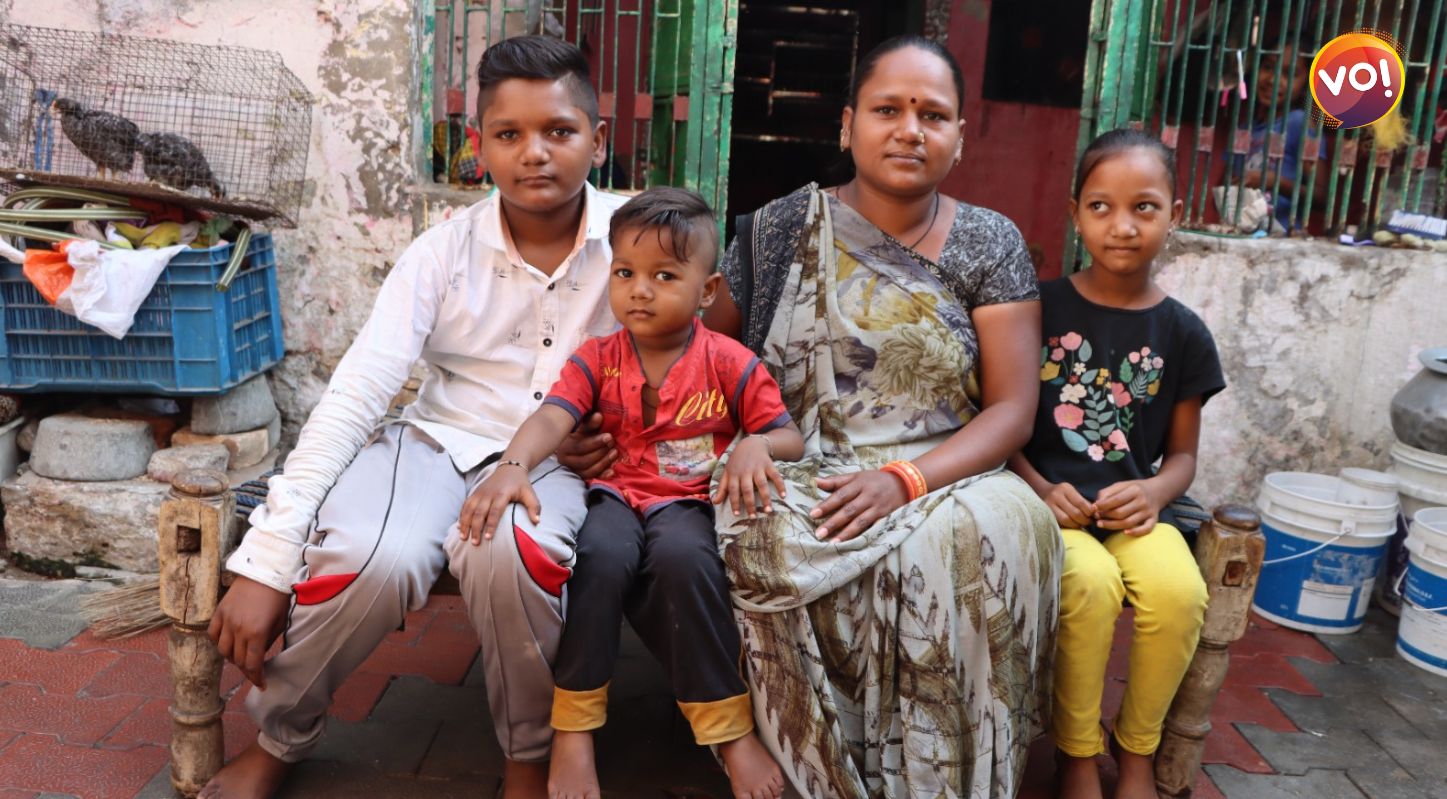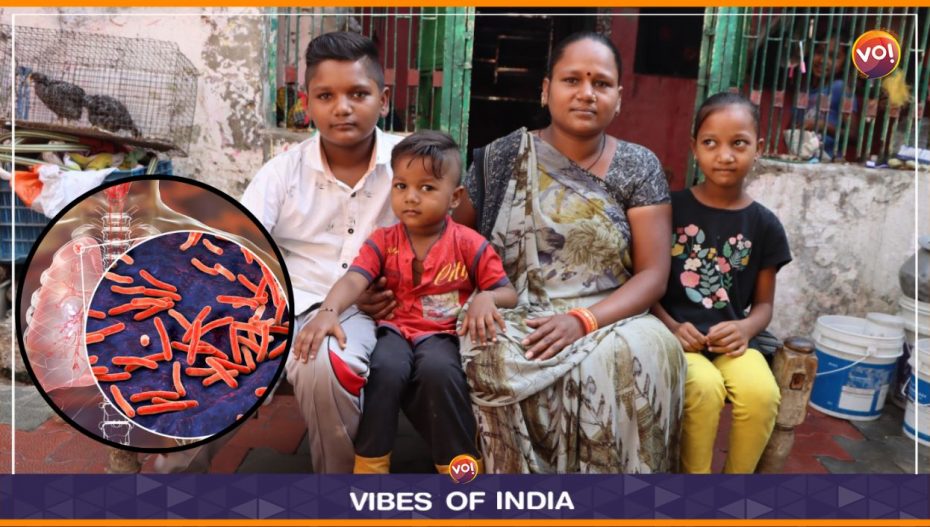Sangitaben Vinodbhai Patni, 30, was diagnosed with Multidrug Resistant Tuberculosis (MDR-TB) and prescribed a regimen of 11 tablets a year ago. A resident of Kumbhaji ni Chali, a slum colony in Meghaninagar, she had never taken tablets in her life and she initially found the prospect of taking so many pills daunting. Many of the pills were large and difficult to swallow and some were bitter and made her gag. She was also confused about which pills to take when.
“Sangitaben was a difficult patient,” says Gaurang Vaghela, the healthcare worker attached to her case at the Meghaninagar Urban Primary Health Centre (UPHC). “She would refuse to take her pills or take them in an irregular manner. We finally convinced her to follow the regimen by telling her that her children ran the risk of catching the infection from her if she did not take her pills and get cured.”

Designated TB Health Visitor (TBHV), 41-year-old Gaurangbhai is a frontline worker for the National Tuberculosis (TB) Elimination Programme and is charged with the welfare of 169 TB patients in the Meghaninagar ward. Of these, 24 have MDR-TB, which is a form of infection that is most difficult to treat. “Meghaninagar has a large population living in slums, where an infectious disease like TB can spread rapidly. Our job is to detect cases early and make sure they are cured,” he says.
While the World Health Organisation (WHO) has set a goal of eliminating TB globally by 2030, India has set itself a more ambitious goal of eliminating the disease by 2025. To aid the effort, the government has introduced several technology innovations. One of these is a TMEAD (short for TB Monitoring Encouragement Adherence Drive) a device developed by the Nashik-based SenseDose Technologies, with funding from India Health Fund of the Tata Trust.
Last year, SenseDose tied up with the Indian Institute of Public Health (IIPH) Gandhinagar, to conduct clinical trials for MDR-TB patients in the districts of Ahmedabad, Gujarat, and Thane, Maharashtra, with 200 patients each. “TMEAD is meant to address the problem of non-adherence in the treatment of Tuberculosis. In the Ahmedabad trials, which were completed in January, adherence to the medicine regime was much higher among patients who used the device as compared to the control group which did not. “If all goes well, we hope to deploy TMEAD throughout Gujarat and Maharashtra by year-end, and nationally in two years,” says Nishad Halkarni, co-promoter of Sensedose (along with Rahul Doshi).

The TMEAD device is essentially a smart pill dispenser with an alarm clock, connected to the internet through an android App. When it is time for patients to take their medicine, the alarm goes off. If the reminder goes unheeded and the patient does not take the requisite pills from the device, an alert is sent to the TBHV assigned to the patient.
The system has worked for Sangitaben, who says, “Whenever the TMEAD alarm goes off, my children start pestering me. They will not leave me until I have swallowed my pills.”

The TMEAD device has also made the work of the TBHVs much easier. Earlier, patients had to make frequent visits to the health centres and queue up for their medicine. The TMEAD device holds 15 days of medication, which means patients collect their medicine from the health centre only twice a month.
The TMEAD App installed on the phones of all TBHVs in Ahmedabad also provides them with a colour-coded dashboard on their phones, where patients are classified as requiring high attention (red), medium and low attention (green), depending on their adherence. The App has been integrated with NIKSHAY, another web-enabled app developed by the National Informatic Centre, to monitor the adherence levels of his TB patients. “These technologies have made our operation more efficient,” says Gaurangbhai. “We can focus on where we are most needed.”
Sangitaben’s health has improved considerably over the past year. She had a racking cough when she first came to the centre and her weight was 52 kg. Now the cough has disappeared and her weight has increased to 62 kg. As a result, her prescribed daily medicine regimen has come down from 11 pills to a more manageable seven pills.
Also Read: Banned Chinese Loan Apps Now Back In APK Avatar On WhatsApp












